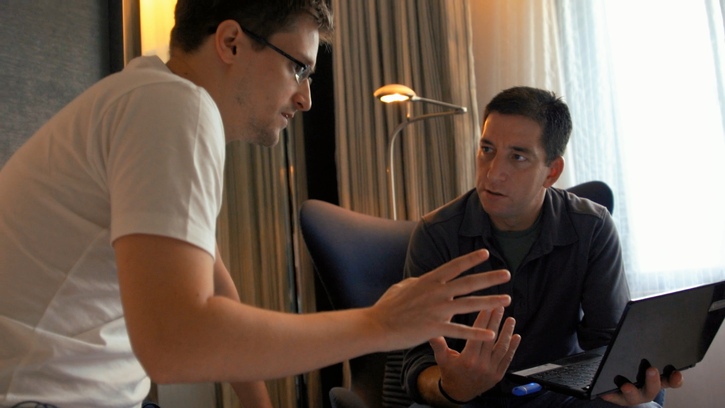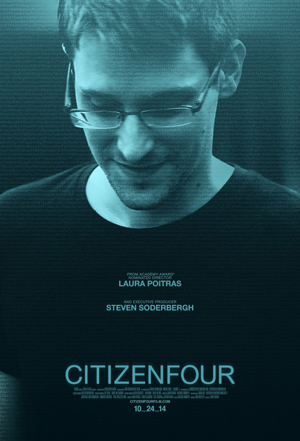
Fascinating Citizenfour Puts Surveillance State On Trial
I don’t think I learned a lot new from watching Laura Poitras’ (The Oath) investigative Edward Snowden documentary Citizenfour. At least, not about the information he leaked, the stuff he provided in regards to the United States and how the government has allowed the National Security Administration (NSA) unfettered access to investigate and conduct surveillance on almost every aspect of a person’s life. As far as that goes, while still terrifying, while undeniably infuriating, while making one question every tweet, text, email and Facebook post, on the primary front of what exactly Snowden released, there’s not a whole heck of a lot of new fuel added to the “Surveillance State” fire.
The strength of Citizenfour, then, is watching how all of this went down, how Snowden, Poitras and journalists Glenn Greenwald and Ewan MacAskill ended up in a Hong Kong hotel room discussing U.S. spying practices far more universal in breadth and scope than anyone had ever imagined in their worst possible nightmares. It’s a real life procedural, a you-are-there-as-it-is-actually-happening All the President’s Men, Poitras and Greenwald on the ground floor of a story that is still being discussed, debated, argued about and shaped right this very second.
On that level the film is fascinating. Sitting in that hotel room with this quartet, listening to what they’re saying, realizing the position they’re willingly putting themselves in, all of that is extraordinary. More than that, Poitras is successful in the implanting of central questions inside the mind of the viewer. Am I being watched? Could I get in trouble for viewing this film? If I say positive words about Snowden and what he’s done does that put me on some sort of watch list? Am I already on one for things I’ve tweeted or posted in the past? How would I know? How does spying on me make my friends, family and the rest of the gosh darn country safer? Does it even matter?
Whether you want to think so or not, all of these questions and more are important and in desperate need of being asked, and the fact Poitras is doing so is a very good thing indeed. She points the camera in Snowden’s face, forces him to say why it is he is doing this, getting him to state in no uncertain terms that he knows exactly what will happen to him as far as his own privacy, his soon-to-be public persona is concerned. It’s breathlessly exciting on that front, achieving a level of intimacy with the viewer that is eerie in its uncomforting all-encompassing embrace.
Citizenfour isn’t the best film of the year, it’s likely not even the best documentary, but it might just be the most important one, and for that reason alone it needs to be seen by as many people as possible right away.
Review reprinted courtesy of the SGN in Seattle
Film Rating: 3 out of 4






